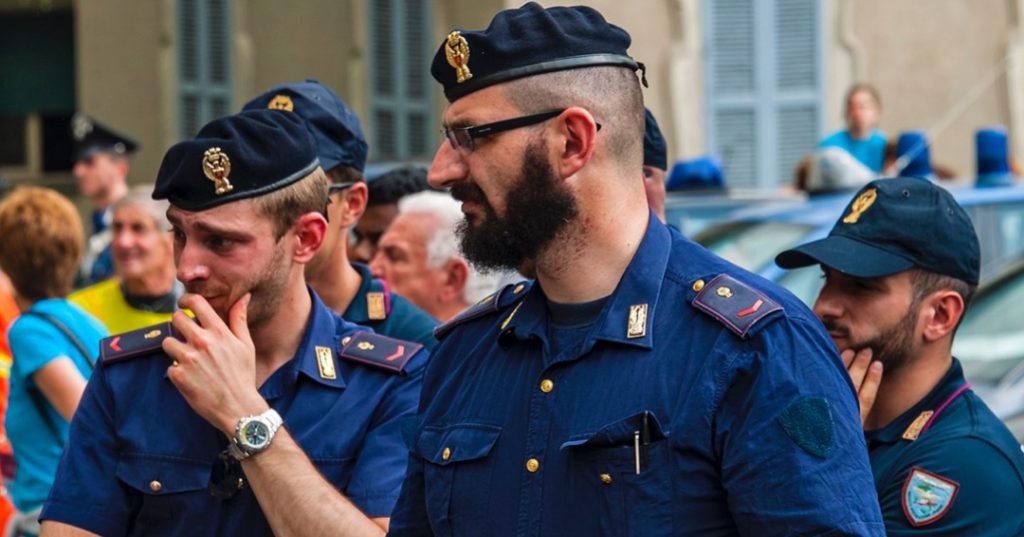Fair Verona? Five officers alleged to have abused and tortured detainees in Northern Italy

Dexter Woolley discusses the recent house arrest of five police officers in Verona following allegations that they have abused and tortured detainees.
Five police officers in Verona have been placed under house arrest pending an inquiry into allegations that the officers abused and tortured detainees. Reports also add that a further dozen officers are also under investigation for failing to act in the face of the abuse.
Two of the officers are also being accused of committing hate crimes against black people and African migrants. The officers seemed to target the vulnerable, the victims in most cases being migrants or homeless. La Stampa cites a Romanian migrant who states that the officers forced him to urinate in a corner of his cell at a police station, having refused to let him use the toilet. The alleged series of abuses dates from July 2022 to March 2023.
The officers seemed to target the vulnerable, the victims in most cases being migrants or homeless
Investigators have reported that the officers were “clearly taking advantage of their status”: “suppressing the rights and freedoms of people under their authority”. “If these facts are confirmed, it would be enormously serious,” Interior Minister Matteo Piantedosi stated. Such conduct damages “not just the dignity of the victims but also the honour and the reputation” of thousands of trustworthy police officers, he added.
Investigators have reported that the officers were “clearly taking advantage of their status”: “suppressing the rights and freedoms of people under their authority”
The case of these Verona police officers can be observed alongside other cases surrounding the treatment of migrants in Italy. Three border police officers are currently under investigation following a shipwreck in February that killed 94 migrants off the coast of Calabria. Investigators cite “significant anomalies” in the activity logs of a motorboat Italian border police used after Frontex, the European Border and Coast Guard Agency, observed the overcrowded boat.
The Italian government has denied accusations of negligence in the case. Newly elected Prime Minister, Giorgia Meloni expressed “deep sorrow for the many human lives torn away by human traffickers” and found that the Italian coastal services had “operated in a correct fashion”. Meloni and the Fratelli d’Italia movement (‘Brothers of Italy’) promised to curb boat arrivals, taking a hard-line stance on illegal immigration. Meloni’s pledge for a “naval blockade” in the Mediterranean is highly controversial and in-line with the party’s nationalist rhetoric.
Meloni and the Fratelli d’Italia movement (‘Brothers of Italy’) promised to curb boat arrivals, taking a hard-line stance on illegal immigration
The policies of Meloni’s government have been characterised under most labels used to describe the right-wing spectrum. The FdI movement and ‘centre-right coalition’ in the Italian parliament contain echoes of both Italy’s history of fascism and Berlusconi’s neoliberal populism. The policy path of Meloni’s government is unclear. However, displays of racially motivated violence can be correlated with the racially charged rhetoric of Meloni’s party. Referring to Italy’s population decline, Agriculture Minister Francesco Lollobrigida (who is also Meloni’s brother-in-law) said at a trade union conference in April, “We cannot surrender to the idea of ethnic substitution.” The minister seems to be referring to the ‘great replacement theory’, a white-nationalist conspiracy claiming white people are being “replaced” in their home countries by non-white immigrants. The rise and rhetoric of the FdI is indicative of the wider problem of racial hatred in Italy.
Displays of racially motivated violence can be correlated with the racially charged rhetoric of Meloni’s party
However, it is also necessary to observe the ways in which such exertions of physical violence are bound to broader policies surrounding the treatment of migrants in Europe. The brutal treatment of migrants in Italy has persisted over the last decade. Amnesty International’s research displays a series of abuses linked to the EU’s flagship “hotspot approach” to the 2015 refugee crisis. The human rights organisation found that policies encouraged by the European Commission allowed officers to repeatedly violate the rights of refugees. In 2015, the European Commission recommended as a means of achieving a 100% fingerprinting rate, “to allow the use of force for fingerprinting and to include provisions on longer term retention for those migrants that resist fingerprinting”. A 2016 paper by Amnesty International details numerous allegations of torture and other cruel, inhuman, or degrading treatment conducted by Italian border forces.


